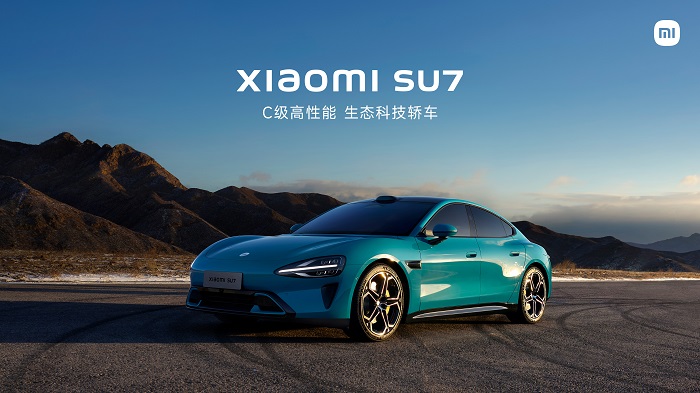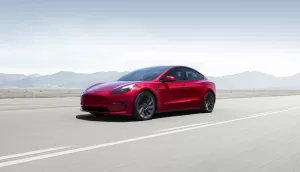From Smartphones to Smart Cars: Xiaomi’s Evolution into the Electric Vehicle Industry

- Xiaomi enters the electric vehicle market with its debut EV models, receiving over 50,000 orders within 27 minutes of sales.
- The company aims to leverage its existing customer base and shared operating system to establish itself as a smart EV brand.
- Xiaomi’s aggressive pricing strategy and promise of advanced features challenge competitors like Tesla and BYD in China’s EV market.
- Global scrutiny intensifies as governments, including China and Europe, investigate subsidies and trade practices in the electric vehicle industry.
Chinese smartphone maker Xiaomi unveiled and began accepting orders for its inaugural electric vehicle (EV). At an event hosted by CEO Lei Jun at his technology giant’s headquarters, Lei announced the standard SU7 model would cost 215,900 Yuan ($29.872; PS23,663) while Max versions would set you back 299,900 yuan.
Xiaomi reports receiving over 50,000 orders within 27 minutes of sales of their electric cars, signaling its entrance into an arena that has seen sales growth decelerate globally and led to price wars among competitors.
Technology giant Intel is taking aim at its electric vehicle (EV) rivals such as Tesla and BYD with this move, setting prices that begin at 245,900 Yuan for Tesla Model 3 starting price in China. Mr Lei also promised that its SU7 would cover at least 700km (435 miles). That beats out 567 km coverage offered by Model 3.
Xiaomi hopes its shared operating system for phones, laptops and other devices – such as the SU7 – will entice existing customers. According to research firm Counterpoint, Xiaomi currently holds approximately 12 percent of worldwide smartphone marketshare.
Xiaomi has been teasing their SU7 sports car since last year and it has drawn comparisons to Porsche’s Taycan and Panamera models. Production will take place at BAIC Group’s Beijing plant where capacity for up to 200,000 annual production can be met.
“Tapping into consumer market for Xiaomi as smart EV brand” would be Xiaomi’s greatest achievement, according to Bill Russo from Automobility for BBC reporting.
Apple, in an indication of the difficulty faced by technology firms that want to develop electric vehicles (EV), recently dropped plans for building one EV.
Mr Russo stated that Xiaomi’s entry into the car market demonstrated their belief in China’s relevance as an EV market, while Apple failed to see potential in other EV markets outside its homeland.
Xiaomi plans on investing $10bn (PS7.9bn) over 10 years in its vehicle business.
“China has an advanced EV market that provides a very stable ecosystem for manufacturers,” stated Abhishek Murali from research firm Rystad Energy. For instance, their battery supply chain and charging infrastructure is strong as demand grows for electric vehicles within their borders.
Xiaomi’s debut car launch coincides with an intensifying price war in China’s electric vehicle (EV) market.
Tesla, led by billionaire Elon Musk, has significantly decreased car costs in China over recent months as competitors such as world top EV maker BYD have also reduced prices significantly.
Xiaomi stands out as an early entry in an already saturated car market by receiving approval from authorities, helping officials mitigate an onslaught of newcomers to this sector. BYD recently posted record profits but reported growth had diminished towards the end of 2016.
Nio has adjusted their forecast for first quarter deliveries as Chinese consumers tighten spending as economic growth weakens, due to Chinese consumer restrictions and as American electric vehicle giant Tesla prepares to release delivery numbers for first three months 2024 next week.
At the same time, governments around the globe are pushing back against imports of foreign-made EVs. Beijing initiated dispute settlement proceedings at the World Trade Organization to challenge “discriminatory subsidies” provided under the US Inflation Reduction Act.
European officials have launched an inquiry to establish whether Chinese state subsidies have given electric car makers in that nation an unfair edge against European models.















